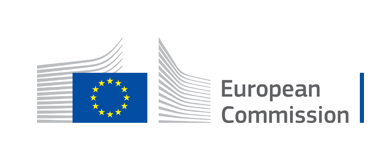|
|

|

|
|
|
26 September 2019
|
|

|
|
|
Economic and Financial Affairs
ECFIN E-news 203
|
|
|
|
|
|
|
follow us :
|


|
|
|
|
|
|
|
|
|
Top story
|

|
|
Finance ministers discuss efficiency of public investment, outcome of G7 finance ministers’ meeting and deepening EMU
|
|
Meeting on 13 September, euro area finance ministers held a thematic discussion on growth and jobs during which they shared good practices on conducting spending reviews and managing public assets to boost the efficiency of public investment.
|
|
|
|

|
|
They also examined the current transparency initiative of the Eurogroup and exchanged views on how to further enhance it. The Commission and the ECB informed ministers on the main findings of the recently completed 11th post-programme surveillance mission to Ireland, while the ESM briefed the Eurogroup on its early warning system. Eurogroup President Mário Centeno briefed ministers about the outcome of the G7 finance ministers' meeting and launched a call for candidates for the upcoming ECB executive board vacancy. In addition, the new finance ministers of Greece and Italy presented the policy priorities of their respective new governments. Meeting in inclusive format, EU finance ministers continued work on deepening of the Economic and Monetary Union (EMU), this time focusing on all pending issues of the budgetary instrument for convergence and competitiveness for the euro area and Exchange Rate Mechanism II Member States on a voluntary basis. Furthermore, during an informal ECOFIN meeting on 13-14 September, EU finance ministers discussed topics including EU fiscal rules, enhanced action on climate change, and energy taxation.
|
|
|
|

|
|
|
|
Viewpoint
|
|
|
|
Mário Centeno, President of the Eurogroup
|

|
|
“In the last crisis, we were able to find a balance in our comprehensive response, combining fiscal policy, structural reforms at national and EU levels and also monetary policy. Going forward, in the face of a downturn, we need to find a new balance and fiscal policy will surely play a part on this.”
|
|
|
|

|
|
|
|
More News
|

|
|
Commissioners-designate to appear in confirmation hearings before the European Parliament
|
|
European Commissioners-designate Valdis Dombrovskis and Paolo Gentiloni are to appear in confirmation hearings before the European Parliament.
|
|
|

|
|
Gentiloni’s hearing is scheduled for Thursday, 3 October from 9 to 12 noon. He is Commissioner-designate for the Economy portfolio. Dombrovskis’ hearing is scheduled for the last day of hearings (which is reserved for the three executive VPs only), Tuesday, 8 October, also from 9 to 12 noon. Dombrovskis is slated to become Executive Vice-President for an Economy that Works for People and Commissioner for financial services. The hearings will last three hours each, with an introductory speech, 25 questions and answers and closing remarks. Prior to that, each candidate will have to answer 7 written questions (5 portfolio-specific and 2 general ones). The hearings will be followed by meetings of the group coordinators, who will give an evaluation of the hearing. The plenary vote on the College as a whole is scheduled for 23 October.
|
|
|
|

|
|
Post-programme Surveillance mission to Cyprus: economic growth strong but decelerating
|
|
European Commission staff, in liaison with staff from the ECB, visited Cyprus from 16-20 September to conduct the seventh post-programme surveillance mission.
|
|
|

|
|
The mission was coordinated with an International Monetary Fund Article IV mission, while staff from the European Stability Mechanism participated in the mission on aspects related to the ESM's Early Warning System. While remaining strong, economic growth is gradually decelerating. After real GDP growth of 3.9% in 2018, the pace of economic expansion moderated in the first half of 2019, largely reflecting external headwinds. Downside risks include the sizable current account deficit and the declining, but still elevated private sector indebtedness. Fiscal performance is expected to remain strong. The general government balance in 2019 is projected to show a sizable surplus of above 3.5% of GDP on account of buoyant tax revenues and some one-off factors. Good progress was made in consolidating the banking sector and reducing non-performing loans, but the Cypriot banking sector still has the second highest non-performing loan ratios in the euro area. Therefore, efforts to further reduce NPLs remain a priority, including plans for further loan sales and securitisations. The structural reform momentum needs to be renewed to support growth and economic resilience going forward.
|
|
|
|

|
|
Staff statement following the fourth post-programme mission to Greece
|
|
Staff from the European Commission, in liaison with staff from the European Central Bank, visited Athens from 23-26 September for the fourth post-programme mission to Greece.
|
|
|

|
|
Staff from the IMF participated in the context of its Article IV surveillance cycle. Staff from the European Stability Mechanism participated in the context of its Early Warning System. The mission held productive discussions on the situation, progress made, and key challenges still facing the Greek economy, as well as the policy priorities of the new administration. The latter included a discussion on the state of play and next steps in implementing Greece’s commitment to continue and complete the key reforms launched under the stability support programme. Discussions on the fiscal situation and outlook will feed into the preparation of Greece’s Draft Budgetary Plan for 2020, which is to be presented to the Commission by 15 October alongside those of all other Member States. The mission was also an occasion to meet with representatives of social partners and banks with a view to updating them on the modalities of engagement in the post-programme period and exchanging views on key policy issues. Close dialogue on economic policy priorities and challenges will continue going forward on a regular basis. The fourth enhanced surveillance report will be issued this autumn.
|
|
|
|

|
|
Investment Plan: EU invests EUR 400 million in safe, clean nuclear fusion energy, SMEs, drug discovery and basic human needs
|
|
The European Investment Bank (EIB) announced on 18 September that it will provide EUR 250 million worth of financing towards the new scientific and technological hub of ENEA (National Agency for New Technologies, Energy and Sustainable Economic Development) in Frascati near Rome.
|
|
|

|
|
This forms part of a total investment of EUR 500 million co-financed by EUROfusion, the EU programme to produce safe, clean nuclear fusion energy by 2050. The transaction is enabled by a guarantee from the EU budget, under the Investment Plan for Europe - the Juncker Plan - and its European Fund for Strategic Investments (EFSI). Meanwhile, in France the European Investment Fund (EIF) is investing EUR 40 million in the SME compartment of SP EuroCréances 2018, a private debt fund focusing on Senior Secured Debt to French SMEs and managed by the private debt team at Schelcher Prince Gestion. This is one of the first investments, and the second one in France, made by the EIF under the “Private Credit Tailored for SMEs” programme. The EIB also announced an investment of EUR 80 million in the Eiffel Essentiel Fund. The fund supports companies whose purpose is to meet the most basic human needs of food, health and preservation of the environment. In Germany, the EIF, the Austria Wirtschaftsservice GmbH (Vienna, Austria), and the Max Planck Foundation (Munich, Germany) have committed a total of EUR 60 million in funding for KHAN-I to support early-stage drug discovery projects. The EIF will provide up to EUR 30 million through “InnovFin Equity Facility for Early Stage” (IFE), an integral part of the European growth initiative.
|
|
|
|

|
|
Customs Union: Fake and potentially dangerous goods worth nearly EUR 740 million stopped at EU customs in 2018
|
|
New figures released by the European Commission on 18 September show that the number of interceptions of fake goods being imported into the EU increased in 2018 due to a large number of small parcels in express and postal traffic.
|
|
|

|
|
Detention figures for seized consignments jumped from 57,433 in 2017 to 69,354 in 2018, though the total number of articles detained decreased compared to previous years. Almost 27 million articles that infringed on intellectual property rights (IPR) were detained in 2018 with a street value of nearly EUR 740 million. Cigarettes topped the list, accounting for 15% of all detained articles. This was followed by toys (14%), packaging material (9%), labels, tags and stickers (9%) and clothing (8%). Products for daily personal use in the home such as body care articles, medicines, toys and electrical household goods accounted for nearly 37% of the total number of detained articles. China continued to be the main source country for goods infringing intellectual property rights.
|
|
|
|

|
|
|
|
Publications
|

|
|
A Calibration of the Term Premia to the Euro Area
|
|
This paper presents the results obtained from calibrating a Gaussian affine term structure (GATSM) based term premia model to the euro area.
|
|
|

|
|
|
|

|
|
Labour Taxation in Romania: Revised, but not changed
|
|
This study analyses the redistributive and macroeconomic impact of recent economic reforms in Romania.
|
|
|

|
|
|
|

|
|
Market Functioning and Market Integration in EU Network Industries – Telecommunications, Energy and Transport
|
|
This report focuses on market functioning and market integration in EU network industries.
|
|
|

|
|
|
|

|
|
|
|
Selected Speeches
|
|
17/09/2019
|
|
Vice-President Dombrovskis. introductory statement on the appointment of the President of the European Central Bank - Candidate: Ms Christine Lagarde
|
|
|
|
|

|
|
|
|
Agenda
|

|
|
Agenda
|

|
|
|
|

|
|
|

|
|














